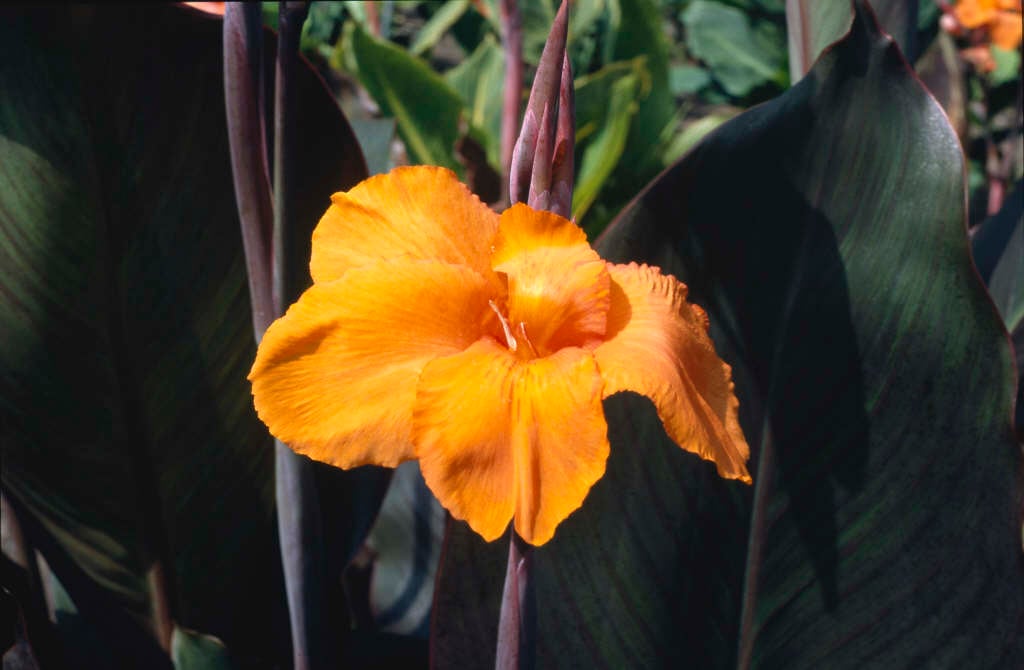Canna 'Wyoming'
canna 'Wyoming'
Robust, clump-forming perennial to about 2m tall, with very large, bronze-purple leaves with darker purple veins, and very large, gladiolus-like, frilled, vivid orange flowers with paler orange feathering and darker orange petal edges, opening from mid summer to early autumn
Size
Ultimate height
1.5–2.5 metresTime to ultimate height
2–5 yearsUltimate spread
0.5–1 metresGrowing conditions
Moisture
Moist but well–drainedpH
Acid, Alkaline, NeutralColour & scent
| Stem | Flower | Foliage | Fruit | |
| Spring | Bronze Purple | |||
|---|---|---|---|---|
| Summer | Orange | Bronze Purple | ||
| Autumn | Orange | Bronze Purple | ||
| Winter |
Position
- Full sun
Aspect
South–facing or West–facing
Exposure
Sheltered Hardiness
H3Botanical details
- Family
- Cannaceae
- Native to GB / Ireland
- No
- Foliage
- Deciduous
- Habit
- Bushy, Clump forming
- Genus
Canna are rhizomatous herbaceous perennials with erect stems bearing ovate leaves, with showy flowers with showy petal-like staminodes and small, coloured petals and sepals, borne in racemes or panicles in summer and autumn
- Name status
Accepted
How to grow
Cultivation
As a patio plant grow in pots of peat-free compost in a sheltered site in full sun. Plants can also be planted into a sunny border. Water freely and apply a high potassium feed every 2-3 weeks in the growing season. Lift the rhizomes in autumn when frost blackens the foliage. Store over winter in barely moist compost in frost-free conditions. See canna cultivation for further information
Propagation
Propagate by division of rhizomes in early spring
Suggested planting locations and garden types
- Architectural
- City and courtyard gardens
- Coastal
- Cottage and informal garden
- Patio and container plants
- Sub-tropical
- Flower borders and beds
- Bedding
- Conservatory and greenhouse
Pruning
Deadhead spent flowers to promote continued flowering. Leave to dieback in autumn
Pests
May be susceptible to aphids, glasshouse red spider mite, slugs and snails, and caterpillars
Diseases
May be susceptible to canna viruses
Get involved
The RHS is the UK’s gardening charity, helping people and plants to grow - nurturing a healthier, happier world, one person and one plant at a time.
